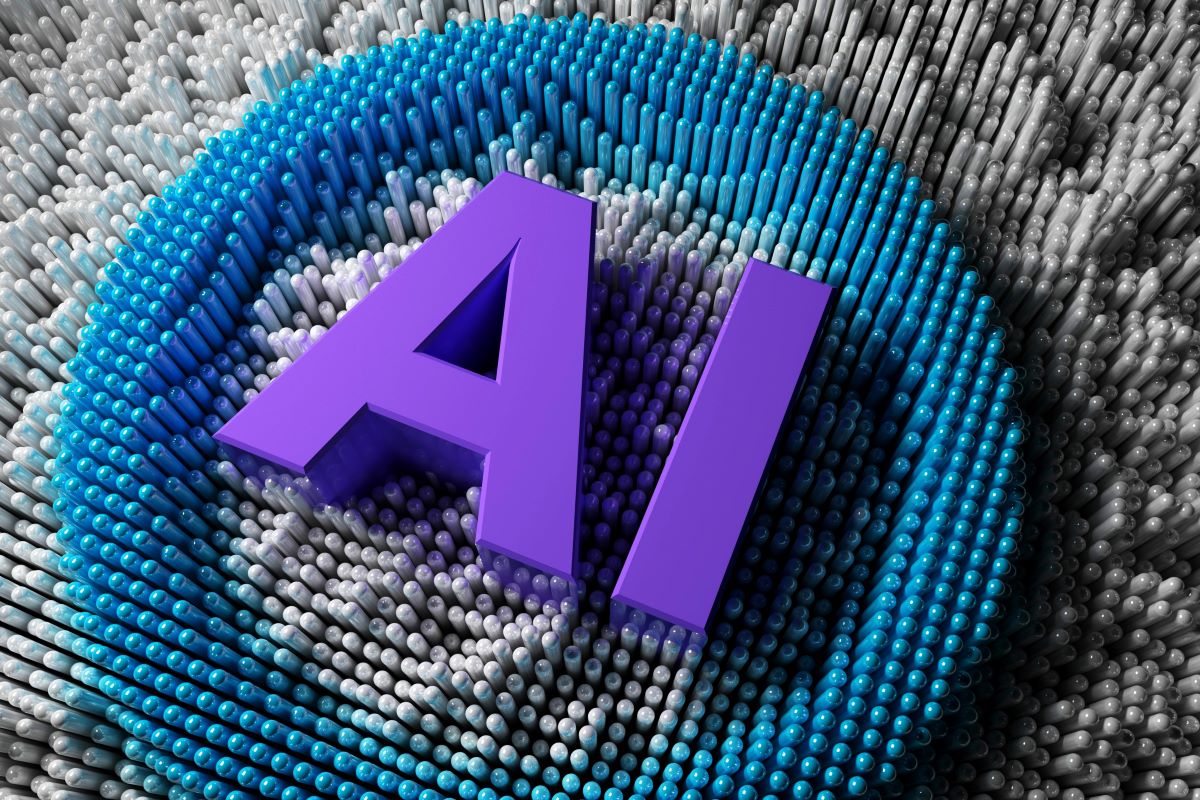Yesterday, I shared a compelling video on my LinkedIn profile featuring Sergey Avdeychik from Andersen Healthcare interviewing Dr. Daniel Kraft. A pivotal question was raised: ‘Will AI replace Human Doctors?’ Dr. Kraft’s profound response resonates deeply: ‘It’s not about human versus machine; the strongest outcome is in collaboration.’ After absorbing diverse perspectives from the comments, I’m inspired to delve into ‘5 Transformative Benefits of Artificial Intelligence in Healthcare’ today.
In the dynamic landscape of healthcare, the integration of cutting-edge technology has ushered in an era of unprecedented innovation. Among the myriad technological marvels, Artificial Intelligence (AI) stands out as a beacon of hope, promising revolutionary advancements in patient care, diagnostics, and treatment methodologies. As we delve into the intricate web of AI’s capabilities, we uncover five transformative benefits that are reshaping the healthcare landscape.
These Benefits of Artificial Intelligence in Healthcare are:
- Precision Diagnosis and Personalized Treatment
- Enhanced Efficiency and Streamlined Workflows
- Early Disease Detection and Prevention
- Advancements in Drug Discovery and Development
- Empowering Remote and Rural Healthcare

1. Precision Diagnosis and Personalized Treatment
At the heart of AI’s impact on healthcare lies its unparalleled ability to process vast amounts of data swiftly and efficiently. Machine learning algorithms, a subset of AI, can analyze complex medical records, genetic data, and diagnostic images with remarkable precision. This capability enables healthcare professionals to diagnose diseases at earlier stages, often before visible symptoms manifest, leading to timely interventions and improved patient outcomes.
Moreover, AI-driven predictive analytics can identify patterns in patient data, facilitating the customization of treatment plans. Tailoring treatments to an individual’s genetic makeup, lifestyle, and specific health conditions maximizes the efficacy of interventions, minimizing side effects, and optimizing recovery rates. The era of one-size-fits-all healthcare is evolving into an era of personalized medicine, thanks to the capabilities of AI.
2. Enhanced Efficiency and Streamlined Workflows
In the realm of healthcare, time is of the essence, and efficiency can be a matter of life and death. AI-powered solutions automate mundane and time-consuming tasks, liberating healthcare professionals to focus on more critical aspects of patient care. Administrative processes, appointment scheduling, and data entry are seamlessly managed by AI algorithms, reducing the burden on medical staff and enhancing overall operational efficiency.
Moreover, AI-driven tools can predict patient admission rates, optimize resource allocation, and streamline supply chain management. By analyzing historical data and real-time variables, hospitals and healthcare facilities can make informed decisions, ensuring that resources are utilized optimally. This newfound efficiency not only saves time and resources but also elevates the quality of care provided to patients.
3. Early Disease Detection and Prevention
One of the most profound impacts of AI in healthcare is its role in early disease detection and prevention. Machine learning algorithms analyze vast datasets, including patient histories, genetic predispositions, and environmental factors, to identify subtle patterns indicative of disease risk. These algorithms can predict the likelihood of diseases such as diabetes, cancer, and cardiovascular disorders before symptoms manifest, enabling proactive interventions.
Furthermore, AI-powered wearable devices and sensors continuously monitor vital signs and health parameters. By analyzing real-time data, AI algorithms can alert individuals and healthcare providers to deviations from baseline values. Timely notifications empower individuals to seek medical advice promptly, preventing the progression of diseases and reducing the overall burden on the healthcare system.
4. Advancements in Drug Discovery and Development
The traditional process of drug discovery and development is notorious for its complexity, cost, and time-consuming nature. AI is revolutionizing this process by expediting the identification of potential drug candidates and significantly reducing research and development timelines. Machine learning algorithms analyze vast biological datasets to identify molecular compounds that could be potential candidates for drug development.
Additionally, AI accelerates clinical trials by identifying suitable participants based on specific criteria, optimizing trial protocols, and analyzing real-time data. This streamlined approach not only accelerates the development of life-saving drugs but also reduces costs, making healthcare more accessible and affordable for patients worldwide.
5. Empowering Remote and Rural Healthcare
In remote and rural areas where access to specialized healthcare services is limited, AI emerges as a beacon of hope. Telemedicine, powered by AI-driven diagnostics, enables healthcare professionals to remotely assess patients, provide consultations, and offer accurate diagnoses. Machine learning algorithms analyze patient data, including images and medical histories, providing valuable insights to healthcare practitioners even from a distance.
Moreover, AI-powered mobile applications and devices facilitate self-monitoring and management of chronic conditions. Patients can receive personalized health recommendations, track their progress, and receive timely reminders for medications and appointments. This empowerment not only improves the quality of life for individuals in remote areas but also contributes significantly to preventive healthcare measures.
6 Challenges in Integrating AI into Healthcare
The integration of AI in healthcare brings about transformative potential, but it also comes with its own set of challenges that demand careful consideration and strategic solutions.
- Data Privacy and Security: One of the primary concerns surrounding AI in healthcare is the safeguarding of patient data. With AI systems relying heavily on vast amounts of sensitive patient information, ensuring robust data privacy and security measures becomes paramount. Safeguarding against data breaches, unauthorized access, and ensuring compliance with regulations such as HIPAA in the United States and GDPR in Europe is crucial.
- Ethical Considerations: The ethical implications of AI in healthcare are profound. Decisions made by AI algorithms, especially in critical areas like diagnosis and treatment recommendations, need to be transparent, explainable, and devoid of bias. Ensuring fairness and accountability in AI systems, as well as addressing potential biases in algorithms, are ongoing challenges that the healthcare industry must navigate.
- Interoperability and Standardization: Healthcare systems often rely on a multitude of platforms, databases, and technologies. Ensuring seamless integration and interoperability between AI applications and existing healthcare infrastructure is a significant challenge. Standardizing formats and protocols is essential to enable different AI systems to communicate effectively, share data, and work cohesively within the healthcare ecosystem.
- Regulatory Compliance: The regulatory landscape for AI in healthcare is continually evolving. Striking the right balance between innovation and compliance with regulatory standards poses a challenge. Healthcare organizations must keep pace with ever-changing regulations to ensure that AI implementations adhere to legal frameworks, which vary across different regions and countries.
- Skill Gap and Training: Implementing AI technologies requires a skilled workforce capable of developing, implementing, and maintaining these systems. There is a growing need for professionals well-versed in both healthcare and AI technologies. Bridging this skill gap through education, training programs, and professional development initiatives is essential to fully harness the potential of AI in healthcare.
- Patient Trust and Acceptance: Building trust among patients is crucial for the widespread adoption of AI in healthcare. Patients must have confidence that their data is being used responsibly and that AI applications are enhancing, not replacing, the human touch in healthcare. Educating patients about the benefits and limitations of AI, as well as addressing their concerns, is key to gaining their trust and acceptance.
Addressing these challenges requires collaboration between healthcare professionals, technologists, policymakers, and ethicists. By navigating these hurdles thoughtfully, the healthcare industry can fully harness the potential of AI to revolutionize patient care while ensuring privacy, ethics, and inclusivity remain at the forefront of these advancements.
Conclusion: Benefits of Artificial Intelligence in Healthcare
In conclusion, the benefits of Artificial Intelligence in healthcare are transformative, reshaping the entire ecosystem from diagnosis to treatment and prevention. As we harness the power of AI, we stand on the brink of a healthcare revolution, where precision, efficiency, and accessibility converge to create a future where every individual receives personalized, timely, and effective healthcare. Embracing these advancements is not just a choice; it’s a commitment to a healthier, more vibrant future for humanity.
In this future, AI algorithms work in tandem with healthcare professionals, augmenting their expertise and amplifying their capabilities. Diagnosing complex diseases becomes more accurate and swift, thanks to AI-powered image recognition and pattern analysis. Treatment plans are meticulously tailored to individual patients, factoring in their genetic makeup, lifestyle, and medical history. Predictive analytics help identify potential health risks, allowing for proactive interventions and personalized preventive measures.
Moreover, AI enhances the efficiency of healthcare systems, optimizing resource allocation, and reducing costs. Administrative tasks are automated, freeing up valuable time for medical staff to focus on patient care. Telemedicine platforms, powered by AI, bridge the gap between patients and healthcare providers, especially in remote or underserved areas, ensuring medical consultation is accessible to everyone, regardless of geographic constraints.
Ethical considerations and data privacy are paramount in this AI-driven healthcare landscape. Stricter regulations and advanced encryption methods safeguard patient information, instilling trust in AI technologies. Continuous research and development in the field ensure that these systems evolve responsibly, addressing potential biases and ensuring equitable healthcare for all.
In essence, the integration of Artificial Intelligence in healthcare not only improves medical outcomes but also democratizes healthcare, making it a fundamental right rather than a privilege. As we move forward, collaboration between technology experts, healthcare professionals, policymakers, and ethicists becomes crucial. By working together, we can navigate the challenges, capitalize on the opportunities, and pave the way for a future where AI revolutionizes healthcare, making it universally accessible, effective, and compassionate.
Check our YouTube Channel, Healthcare Uncomplicated. To find out more about how we can help you with your Digital Healthcare Transformation, Healthcare organizational growth, or Healthcare brand positioning via our Partner as a Solution service, please get in touch via phone at +44 (0)1273 458590 or via e-mail: info@digitalsalutem.com





